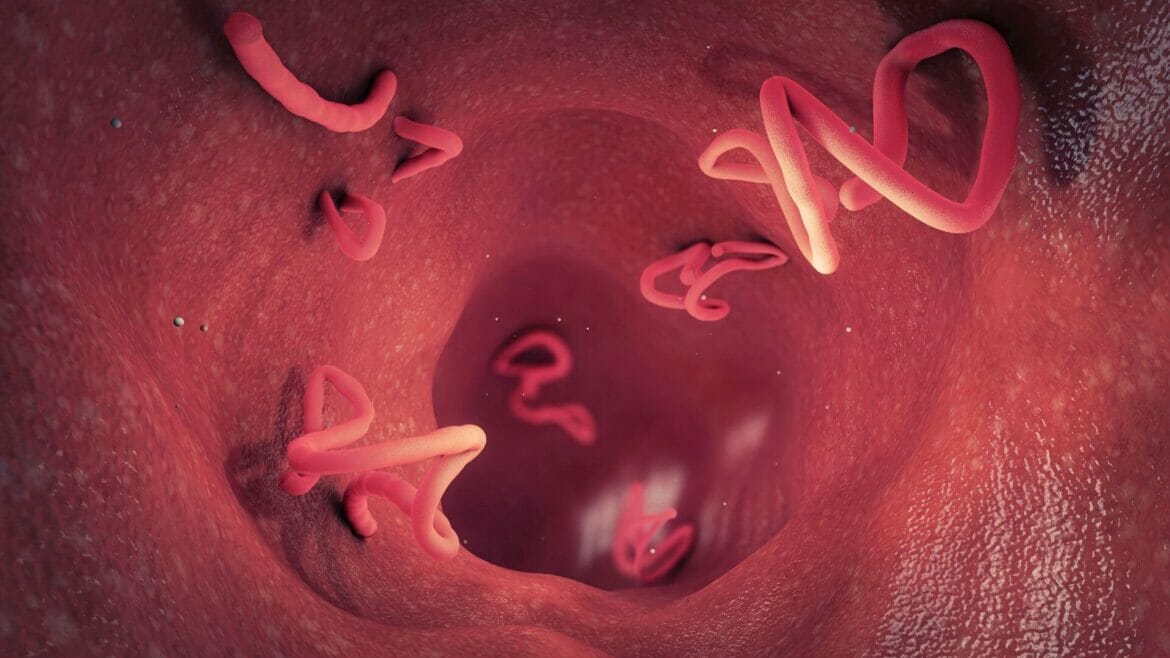Have you been experiencing abdominal pain or fatigue, or unexplained weight loss? Is your child seem to have lost their appetite? Intestinal parasites or intestinal worms may be the reason. This article discusses some of the most common symptoms of intestinal parasites to help you identify if you may have an infection and seek proper medical treatment.
Intestinal worms
Intestinal parasites live in the gastrointestinal tract and can cause various symptoms. There are many different types of intestinal worms, including roundworms, tapeworms, hookworms, and whipworms. These parasites can range in size from tiny microscopic organisms to larger worms that can be several feet long.
You may catch worm infection through various means, including contaminated food or water, contact with infected soil, and close contact with infected individuals or animals. Adopting good hygiene practices such as washing hands regularly and properly cooking food can help prevent the spread of intestinal worms.
In addition, some simple home remedies help prevent worm infestation, and others may help cure intestinal parasites.
Learn more: 8 Very Effective Home Remedies To Treat And Prevent Intestinal Worms
Intestinal parasites – Symptoms
Often, intestinal parasites do not show any symptoms at all. Usually, you may have mild abdominal discomforts that go away if you have a good immune system and a healthy lifestyle.
In fact, intestinal worms or parasites may live in the intestine for years without symptoms, But when you see signs, it may mean severe infestation, which can even harm growth in children as they may cause appetite loss. Further, intestinal worms can cause other problems, such as intestinal blockage, making it difficult to pass stools.
Lesser harmful pinworms can be annoying as they cause itching in the anal area. This is because the mature worms move to the anal area to lay eggs during the night, and hence you will feel the place extremely itchy.
So watch out for the following most common symptoms of intestinal parasites and get yourself investigated by a doctor to prevent complications.
Here are eight common symptoms of intestinal parasites:
- Abdominal pain and cramping: Intestinal parasites may cause irritation and inflammation in the digestive tract, leading to abdominal pain, discomfort, bloating, and cramping.
- Diarrhoea or constipation: Intestinal worms can disrupt normal bowel movements, causing diarrhoea, loose stools, or constipation.
- Fatigue: Interfering with the absorption of nutrients in the intestines is a serious concern in severe worm infestation. This can cause chronic fatigue and may also affect your appetite, which may cause anaemia or weight loss.
- Nausea and vomiting: Some intestinal parasites can cause nausea, vomiting, and loss of appetite.
- Anal itching: Some intestinal parasites, such as pinworms, lay eggs around the anus, causing itching and irritation.
- Dysentery: A person with intestinal worms may also have dysentery. Dysentery is when you have severe stomach pain and bloody diarrhoea.
- Rash: Stomach worms may also cause a rash around the rectum or vulva, which is itchy and irritating.
- Worms in your stool: Sometimes, you pass a worm during a bowel movement. Intestinal worms in the gut eventually pass through the digestive system and are excreted in your faeces. Even in the absence of other symptoms, you may notice signs of worms in your poo. For example, roundworms look like pieces of worms or large, live worms in your faeces. Pinworms may be thin, white worms that appear like pieces of thread. You may also notice pinworms in the anal area at night when the mature female lays eggs on the site.
Recommended Reads
- 3 Wonderful Herbs To Fight Fatigue And Boost Energy Naturally
- How Do You Ensure Dietary Needs Of Your Toddler?
- Getting Rid Of Indigestion Is Now Easy Than Ever!
To conclude,
Symptoms of intestinal worms vary according to the worm’s type and the severity of the infestation. Some common symptoms include abdominal pain, diarrhoea, constipation, nausea, vomiting, fatigue, unexplained weight loss, and anaemia. However, not all individuals with intestinal worms will experience symptoms. And some symptoms may be similar to those of other gastrointestinal disorders.
So, if you suspect that you may have intestinal parasites, it is necessary to seek medical attention. This includes proper testing and suitable treatment to prevent further complications and the spread of the infection. In addition, prevention measures such as good hygiene, avoiding contaminated food and water, intestinal worms’ home remedies, and regular deworming of pets and livestock can also help reduce the risk of intestinal worm infestations.
Images: canva.com
